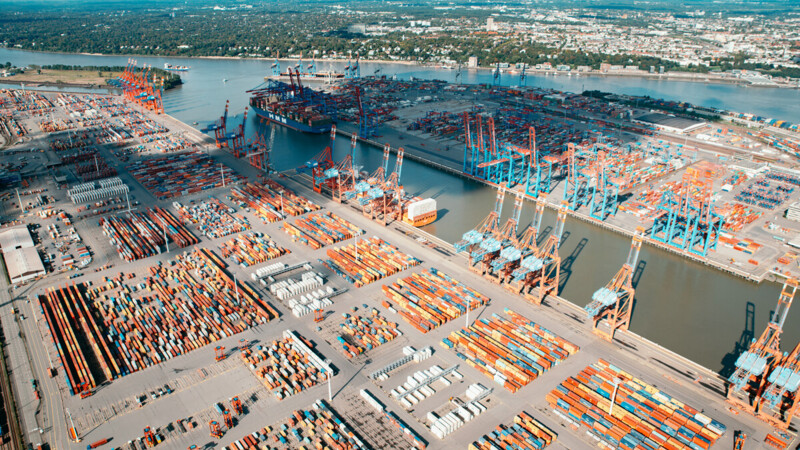The cross-industry activities are a special feature of the Hamburg Metropolitan Region, said Wegner and pointed out: "We and the Renewable Energy Hamburg, Hamburg Aviation, Hamburg Cruise Net and the Hamburg Logistics Initiative clusters hosted a conference in February attended by 200 guests focusing on the progress of various hydrogen applications and projects.” More interdisciplinary exchange is among MCN’s goals. "Co-operation and looking at neighbouring industries are crucial to competitiveness in economically challenging times," said Wegener. The maritime industry generated almost EUR 30 billion (2018) in added value thereby supporting 450,000 jobs (2018). "As a rule of thumb, 100 jobs in the maritime industry support another 130 jobs in Germany," Wegener stressed. The network also assists its members with knowledge transfer and information. "SMEs, in particular, cannot stay apace with all the latest trends parallel to their day-to-day business. That's why we look towards the future in terms of events and projects."
Digital transformation, sustainability, demographic change and globalisation are among the megatrends identified by the Maritime Cluster Northern Germany (MCN) for its strategy. Jessica Wegener, Managing Director of MCN, noted: "The MCN has aligned the strategic direction of the cluster's work with these trends until 2025. The strategy is being developed in close co-operation with our members and institutions in commerce, science and politics." This maritime network spans across the five coastal states of Bremen, Hamburg, Mecklenburg-Western Pomerania, Lower Saxony and Schleswig-Holstein and goes far beyond shipping. Other sectors include shipbuilding, maritime suppliers, ports, offshore wind farms and universities.
Maritime industry secures 450,000 jobs
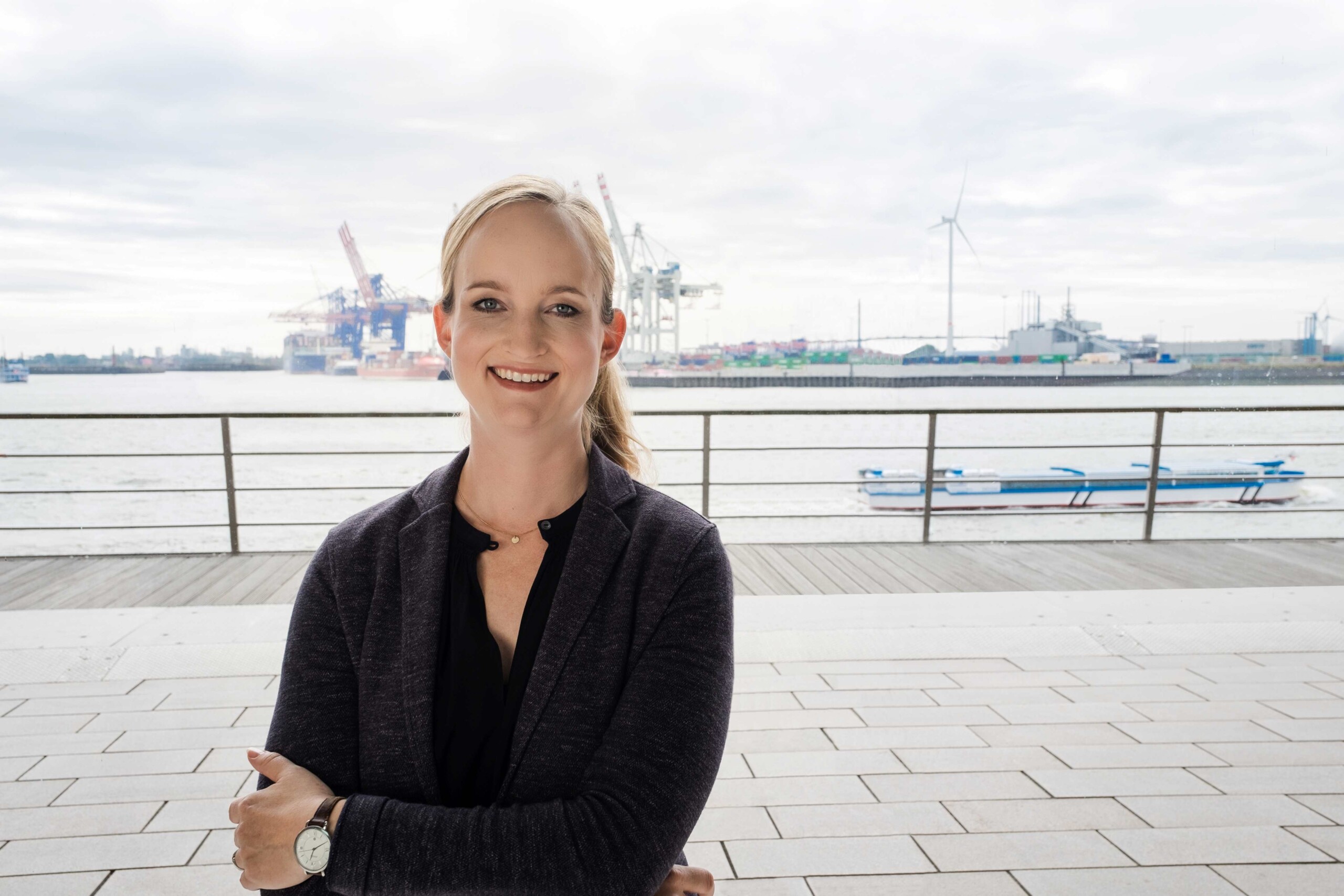
Numerous approaches to innovation
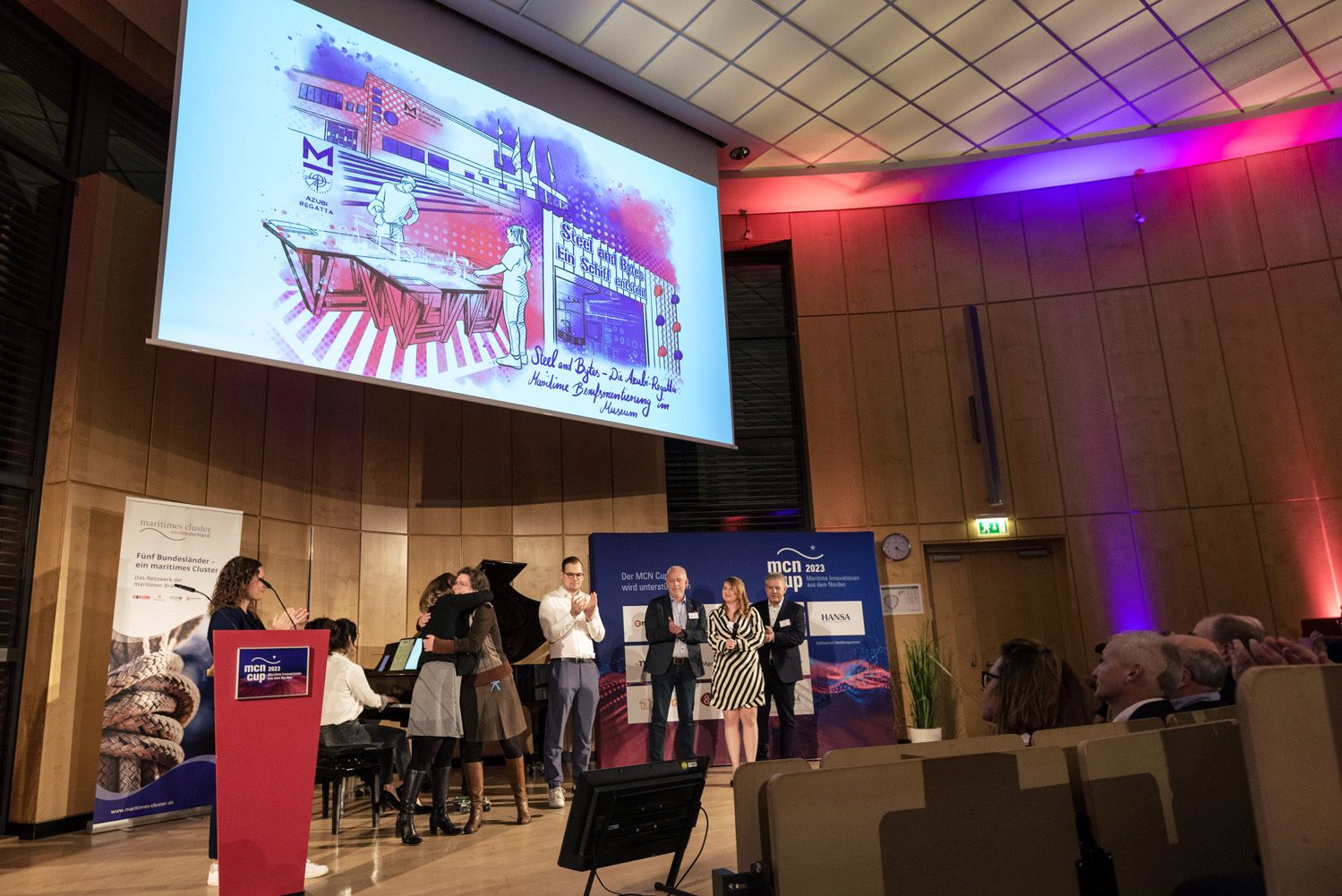
The MCN Cup competition, for instance, raises the visibility of innovative concepts and technologies every two years. In 2023, the focus turned to opportunities and the potential for greater sustainability along the entire maritime value chain. Projects such as the virtual intelligent port (VIPort), sustainable energy supply thanks to digitalisation and the Clean Waves project on environment-friendly fuel in Stavenhagen won prizes last year.
"The cluster is also trying to come up with solutions for e.g., biofouling," Wegener said. The fouling of hulls by barnacles and algae increases the flow resistance of ships and thus their energy consumption. "It can also spark the invasion and spread of species that damage the native ecosystem." An expert platform has been created for interdisciplinary solutions as part of the Central Innovation Programme for SMEs. This global network brings together very different experts, who present preventive measures based on varnishes, resins, coatings or films and offer environment-friendly technologies for removing fouling using with laser or ultrasound.
AI and 3D printing among promising technologies

Forward-looking technologies such as artificial intelligence (AI) and 3D printing are also recurring topics for MCN, Wegener stressed. "AI holds huge potential for energy savings by optimising maritime logistics' routes. And AI is gaining momentum among our member companies. "3D printing is another key trend, albeit not a megatrend," she noted "but the topic is becoming more important, particularly for spare parts logistics and counteracting supply chain delays." Modern technologies in the maritime sector also help curb demographic change, Wegener said. "We want to help our members attract and secure skilled labour. We make our industry more attractive by demonstrating high-tech activities." The upcoming SMM maritime trade fair in autumn will give the industry yet another opportunity to present its innovative strength and to attract job seekers from September 6-9, 2024. Then, movers and shakers in the maritime sector, commerce, science and politics will come together in Messe Hamburg to present all their latest products and innovations at the leading trade fair.
ys/pb
Read the other parts in our series.
1) EEHH keeping a close eye on energy transition
2) Aviation becoming environment-friendlier
3) Creatives to sharpen focus on sustainability and creative AI
4) Hamburg future-proofing itself as a logistics centre
Sources and further information
More
Similar articles
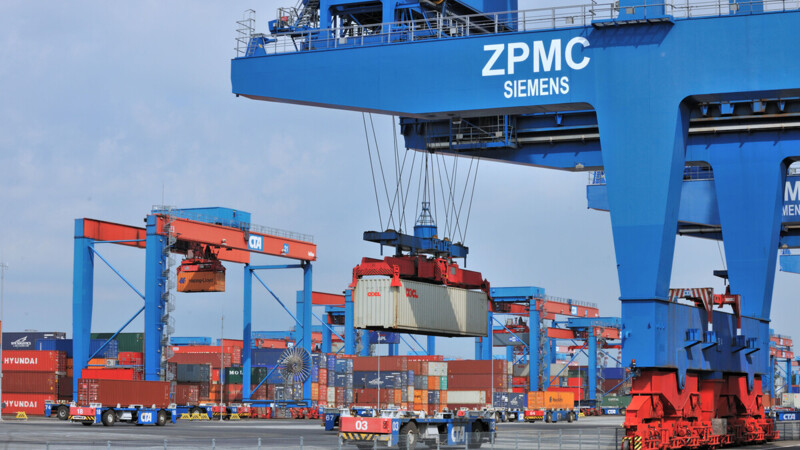
Container transport at CTA now fully electric, HHLA says
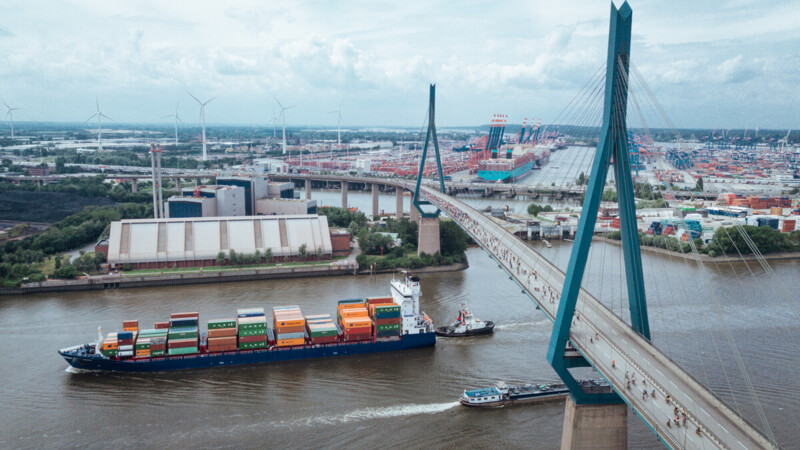
Slight recovery in Port of Hamburg's container handling
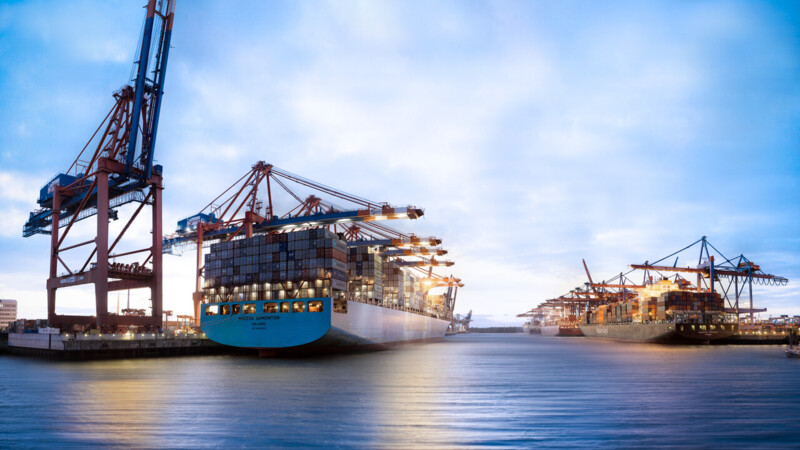
Port of Hamburg and Canada forge closer ties on hydrogen
